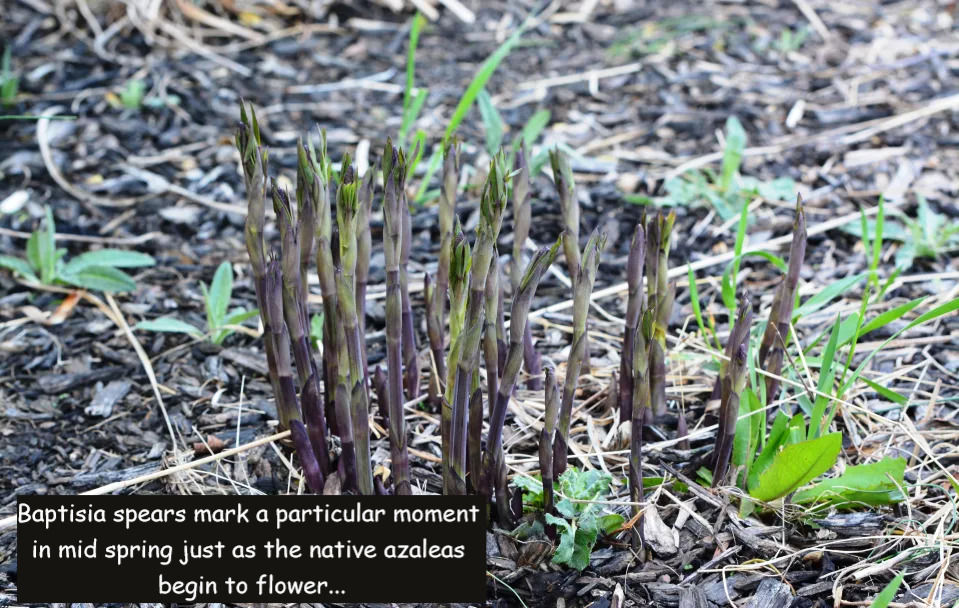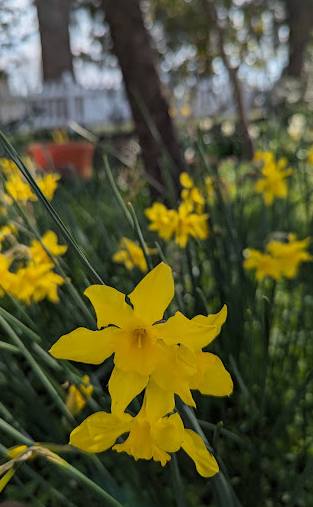No, it doesn't bloom all year long...
- Clifford Brock
- Apr 20, 2022
- 4 min read
Recently at the nursery, I helped a customer who was looking for something blooming for his front yard. After asking him if he was thinking about annuals or perennials, he seemed irritated, so I quickly pointed to an azalea in full bloom and asked, "something like this?" So he must have had at least some horticultural knowledge because he responded, "no, that only blooms in the spring, I want something that blooms year-round."

I hardly ever get frustrated by people, even with those who know nothing about horticulture, but this question, which, btw I get quite often, upsets me on a primal level. It shows a complete lack of understanding and curiosity about the basic forces that shape and create life on our beautiful planet. And to me, this kind of ignorance is not only frustrating but is also dangerous.
It is sadly common for us to have unrealistic expectations for our plants. Many of us expect them to be unchanging accessories, like the furniture in our houses. Nature-deficit disorder (NDD), as it's been penned, is so rampant in our society that many people don't know the difference between a tulip and an oak tree. While there are those among us who adore nature and are proficient gardeners, the general populous is becoming increasingly detached from the physical world as technology competes with reality for our ever-atrophying attention. NDD is dangerous because children that grow up disconnected from nature are less likely to treasure it as adults.

We, humans, are evolutionarily wired to notice plants when they present colors other than green. This stems from the deep past when we were constantly on the lookout for colorful ripe fruits and seeds. And because we are immersed in a sea of green leaves, we end up not really "seeing" them. Thus flowers with bright colors are especially alluring to us.
So I totally understand why people might desire a plant that blooms for as long as possible... Yet I firmly believe this expectation represents a fundamentally flawed way of viewing horticulture/ nature and its function in our lives. This kind of thinking can lead to a devaluing or even a commodification of nature. I feel deeply that we must accept and respect the rhythms of nature. Our ancestors were strongly in touch with the seasonality of things. Their careful observations of the stars and the patterns of nature helped them develop agriculture and colonize this harsh planet.
In the future, we may very well be able to engineer plants that do bloom all year. I guess it is theoretically possible. However, nature flows in rhythms and cycles, and just as Ecclesiastes says "to everything there is a season". This seems so simple, but I can't stress how important this insight has been to me... it has influenced my whole personal worldview! I gain so much peace and awe from knowing that I am connected to this cycle and that our world is always in flux, yet still has inherent organization and patterns. There is always something new, yet familiar to look forward to!

Every spring I look forward to perennial, say a Baptisia, going from a dormant ground-level bud to the fat "asparagus-like" spears shooting straight up, then flowering sometime in May. There is always "change" in nature!

Many of our plants bloom in spring, and yet many others hold tight to their buds until fall, like our native asters or the curious toad lilies. Some plants refuse to bloom until the coldest and darkest months of the year, like wintersweet and daphne. Again, everything has its time!
Imagine a world where everything was blooming all at the same time and in perpetuity. How would we come to view such overwhelming natural beauty day in and day out? Would we appreciate it if it was ALWAYS in bloom? Would we even see it, or would it blend in like a painting, billboard, or the green leaves of a tree? We notice and value things only when they are ephemeral or fleeting. And this is one of the primary reasons I love the act of gardening. I know that this flower that I see today is a special moment and that I may only get to appreciate it for around one week each year. I can't help but treasure moments like this.

So there currently isn't a silver bullet that blooms all year. Even annuals or repeat-blooming shrubs like hydrangeas and Encore azaleas have their pitfalls. When a plant flowers repeatedly for a long period of time, it becomes "tired-looking" and nutritionally depleted. We have to remember that a bloom is the reproductive structure of a plant. While the analogy isn't perfect, imagine if we were pregnant for 12 months year after year... Think of how stressed and exhausted we'd feel if we were constantly in "reproduction" mode.
Take time to notice the changes in the natural world around you, whether that be in a native forest or in your neighborhood. Your life will be enhanced by paying attention to the dynamic rhythms of nature.




Comments